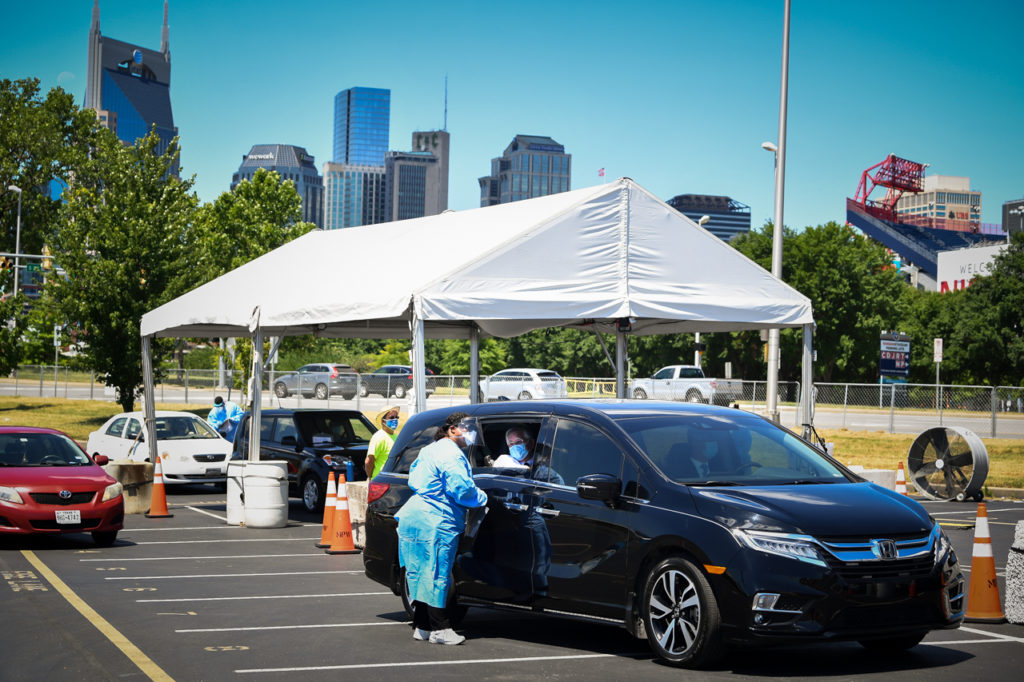
Nashville is reporting its largest daily spike in cases of the coronavirus this morning, largely blamed on a private lab paid by the state to process the results.
In all, the city reported 300 new cases, with 200 of them delayed from recent weeks.
Dr. Alex Jahangir, chair of the Metro Board of Health, says he learned of the unreported cases on Sunday afternoon.
“It really frustrated and infuriated me,” he says. “If they’re listening to me, it’s not acceptable for me that we’ve now had three times in a month where a lab has delayed the results in the manner in which it has been.”
Jahangir says, however, that the city’s epidemiological statistics should remain accurate since the cases will be added to the particular days which the samples were taken in early June.
Who’s Testing
Metro has been working with two commercial labs, PathGroup and AEL, who are paid by the state roughly $100 per test. Jahangir confirms to WPLN News that AEL, based in Memphis, is responsible for the recent backup.
A similar uptick of cases in Shelby County on Monday is the result of a similar “data flow” issue, says Tennessee Department of Health spokesperson Shelley Walker.
AEL has a contract with the state to run a lab in Memphis and was one of the first commercial labs to start processing samples for the state.
The company has already been asked by the state to upgrade their systems so that they can more quickly transmit test results. The Tennessee Department of Health sent a letter to AEL’s top doctor, obtained through an open records request by WPLN News, in late April.
“This is a system that is being widely used across the state, with good success,” Commissioner Lisa Piercey wrote. “I think that the COVID-19 outbreak response demonstrates how critical it is to have rapid and complete transmission of reliable data to our Department.”
A spokesperson for AEL has not yet responded to a request for comment and whether the system has been implemented.
Holding In Phase Two
Jahangir and other health officials warned people that the pandemic is far from over in Nashville. And the city continues to hold in phase two of its reopening plan, though Jahangir says most metrics remain tolerable, such as hospital capacity, mortality rates and testing capacity.
“But we cannot ignore the rising 14-day daily average count without learning more about new cases.” he says. “This will determine if there are any new clusters or patterns in these cases.”
In recent weeks, cases have been clustered in southeast Nashville. Today, Metro Health announced a new position to oversee outreach to immigrant communities and a pledge to add testing sites beyond the drive-thru center established in an old K-Mart parking lot on Murfreesboro Pike.

